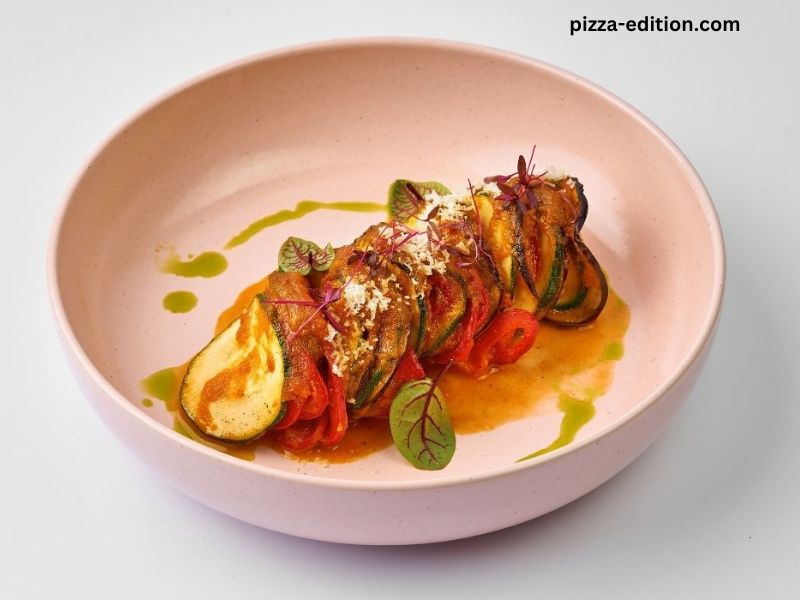Ratatouille is a 2007 animated film produced by Pixar Animation Studios and directed by Brad Bird. It tells the story of Remy, a small rat with an extraordinary sense of taste and smell, who dreams of becoming a chef in the heart of Paris. The film not only entertains with its humor and stunning animation but also delivers a powerful message about following one’s passion against all odds. In this article, we’ll explore Remy’s character, his journey, the themes of the film, and the cultural impact of Ratatouille.
The Character of Remy
Remy, voiced by Patton Oswalt, is a rat unlike any other. From a young age, he is fascinated by the world of cooking, inspired by his idol, the late chef Auguste Gusteau. Unlike his fellow rats, who are primarily concerned with scavenging and survival, Remy has refined tastes and a deep appreciation for gourmet food. This sets the stage for his inner conflict: he is a rat who dreams of becoming a chef, a profession traditionally reserved for humans.
Remy’s character is defined by his determination and passion for cooking. He possesses an extraordinary sense of smell and taste, which allows him to create exceptional dishes. However, his journey is not without challenges. He faces prejudice from both humans and his own family, particularly from his brother, Emile, who does not understand his dreams. Remy’s relationship with his father, Django, also adds depth to his character; Django represents the traditional rat way of life, while Remy yearns for something greater.
The Journey to Becoming a Chef
The film begins with Remy’s escape from the confines of his rat colony in the countryside of France, leading him to the bustling streets of Paris. His journey symbolizes the struggle many face when pursuing their dreams, especially those from unconventional backgrounds. Remy’s arrival at Gusteau’s restaurant marks the beginning of his culinary adventure. Here, he teams up with Linguini, a hapless young man who aspires to be a chef but lacks the skills.
The duo’s partnership is central to the film’s narrative. Remy, hidden beneath Linguini’s chef hat, pulls his hair to control his movements, allowing him to cook spectacular dishes that earn the restaurant rave reviews. This innovative collaboration highlights the importance of teamwork and creativity, showcasing how two seemingly different individuals can come together to achieve greatness.
Themes of Passion and Identity
Ratatouille explores several themes, but at its core is the idea of following one’s passion. Remy’s relentless pursuit of his dream resonates with viewers of all ages. The film conveys that talent and passion can emerge from the most unexpected places, challenging societal norms and expectations. The famous line, “Anyone can cook,” encapsulates this message, suggesting that with dedication and creativity, anyone can achieve their dreams, regardless of their background.
Another significant theme is the concept of identity. Remy grapples with his identity as a rat in a world dominated by humans. His struggle to balance his culinary aspirations with societal prejudices reflects the broader human experience of seeking acceptance while staying true to oneself. This theme is poignantly illustrated in his interactions with other characters, particularly the food critic Anton Ego, who represents the harsh judgment of society.
The Role of Food as a Character
In Ratatouille, food itself plays a crucial role, almost becoming a character in its own right. The film beautifully illustrates the artistry of cooking, transforming food into a medium of expression and creativity. Remy’s culinary creations are not merely meals; they evoke emotions, memories, and experiences. The visual storytelling, coupled with the delightful sound design of sizzling pans and clattering utensils, immerses the audience in the world of gastronomy.
One of the film’s most memorable scenes is when Anton Ego tastes Remy’s ratatouille. The dish transports him back to his childhood, evoking nostalgia and warmth. This moment underscores the film’s assertion that food is not just sustenance; it is a powerful connector of people and experiences. Through Remy’s culinary skills, the film emphasizes that cooking is an art form that can bridge gaps between different cultures and backgrounds.
Cultural Impact and Reception
Ratatouille received critical acclaim upon its release, winning the Academy Award for Best Animated Feature and garnering numerous other accolades. It resonated with audiences, becoming a beloved classic that transcended age demographics. The film’s unique premise of a rat as a chef challenged conventions and encouraged viewers to reconsider their own assumptions about talent and ability.
Beyond its immediate success, Ratatouille has had a lasting cultural impact. The film has inspired a new generation of chefs and food enthusiasts, leading to an increased interest in French cuisine and cooking as an art form. The character of Remy has become a symbol of perseverance and creativity, embodying the belief that anyone, regardless of their circumstances, can achieve their dreams.
The film also sparked discussions about the culinary industry, with many aspiring chefs citing Remy as a source of inspiration. Culinary schools and programs have embraced the themes of the film, encouraging students to pursue their passions and break free from traditional constraints.
Lessons from Remy’s Journey
Remy’s journey in Ratatouille imparts several important lessons. First and foremost, it teaches viewers the value of pursuing one’s passion, regardless of the obstacles one may face. Remy’s determination to become a chef in a world that sees him as an outsider illustrates the power of resilience and hard work.
Furthermore, the film highlights the importance of collaboration and mentorship. Remy and Linguini’s partnership serves as a reminder that diverse talents can come together to create something extraordinary. This message resonates not only in the culinary world but in various fields, emphasizing the value of teamwork and shared goals.
Lastly, Ratatouille invites viewers to appreciate the beauty of food and its ability to evoke memories and emotions. It encourages a deeper understanding of the culinary arts, reminding us that cooking can be a profound expression of love and creativity.
Conclusion
Ratatouille is much more than an animated film about a rat who wants to be a chef; it is a celebration of passion, creativity, and the power of food. Remy’s journey resonates with anyone who has ever dared to dream against the odds, inspiring viewers to embrace their uniqueness and pursue their passions wholeheartedly. As we watch Remy navigate the challenges of the culinary world, we are reminded that, indeed, anyone can cook—and anyone can achieve their dreams, no matter where they come from. Through its timeless story and memorable characters, Ratatouille continues to inspire, entertain, and encourage us to savor the beauty of life, one dish at a time.




